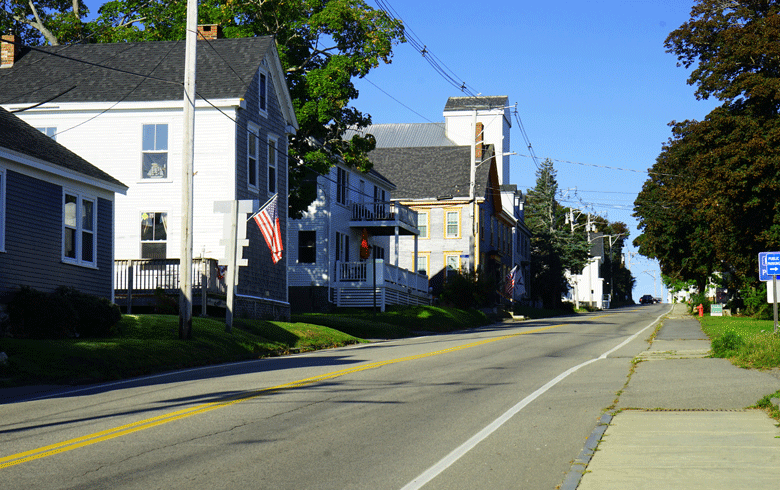Reflections is written by Island Fellows, recent college grads who do community service work on Maine islands and in coastal communities through the Island Institute, publisher of The Working Waterfront.
Over the last couple of weeks I have been asked to define resiliency. Eastport is in the process of joining the Community Resiliency Partnership, a program offered by the state to help communities become more resilient to the impacts of climate change and other environmental challenges.
One step in the process to join the partnership is to host a workshop for the community to learn about these topics and help set priorities around resiliency. As the event approached, folks got excited about being part of the discussion, but kept asking me what resiliency really meant, and how could it apply here in Eastport.
At first, I echoed the guidance Merriam-Webster provided in its definition: “the ability of something to return to its original size and shape after being compressed or deformed” or “an ability to recover from or adjust easily to adversity or change.”
Why can’t resiliency be something communities do proactively in anticipation of change?
I added what I had been taught, that resiliency was an ability to bounce back, to recover quickly in times of stress, and to find a new equilibrium in times of change. During my service in the Peace Corps this interpretation of resiliency was the constant refrain of staff; in that chapter of my life resiliency was more about flexibility, adaptability (and probably a few more words ending in “ability”), but the questions from locals in Eastport made me wonder if the same definition worked when applied to a community rather than an individual.
In some aspects, yes. We want to develop communities that are adaptable in times of change, can recover quickly from stressful situations, and adapt to meet the needs of its members.
But my frustration with the dictionary definition is that it’s all reactionary; that being resilient is only something that can be done after something has occurred. Why can’t resiliency be something communities do proactively in anticipation of change? Isn’t that what we want to see, communities planning in advance to anticipate and adapt to the impacts of change?

When I look at the actions encouraged through the Community Resiliency Partnership, many are proactive, not reactive. Given that, should the definition be adapted to reflect the work Eastport is doing to plan for its future?
If you take this a step further and consider resiliency as an adjective, could it then become a core value that defines the spirit of a small (but determined) Downeast community? Or if we apply resiliency as an adverb, does it then describe the actions taken by a community to thrive despite anticipated or unexpected change? Regardless of which form the word takes, it seems resiliency suggests actions that are proactive, collaborative, and community-led.
Back to the original question: What does resiliency mean, and how could it apply here in Eastport? I don’t think folks were looking for the formal definition. They wanted to know how it applied to our community, what specific examples could I provide that would justify this definition. Now knowing this, I have adjusted my answer to the question to reflect the needs of those I answer.
To me, resiliency is being able to overcome challenges, expected and unexpected, and being able to return to stability quickly. Resiliency isn’t about returning to an original state, but finding a new normal in response to challenges. Resiliency is about planning for the future and taking action in anticipation of what is to come. Resiliency is not just a noun, but an adjective and an adverb and so much more.
While I don’t think I have a perfect definition (and maybe there is no such thing), I think I’m getting closer to what may work in Eastport.
Paige Atkinson works with the city of Eastport on energy and senior housing. She grew up in California and graduated from the University of California, Santa Barbara with a degree in environmental studies. After graduation, she served in the Peace Corps in the Philippines.





